Posted on 08 February 2024
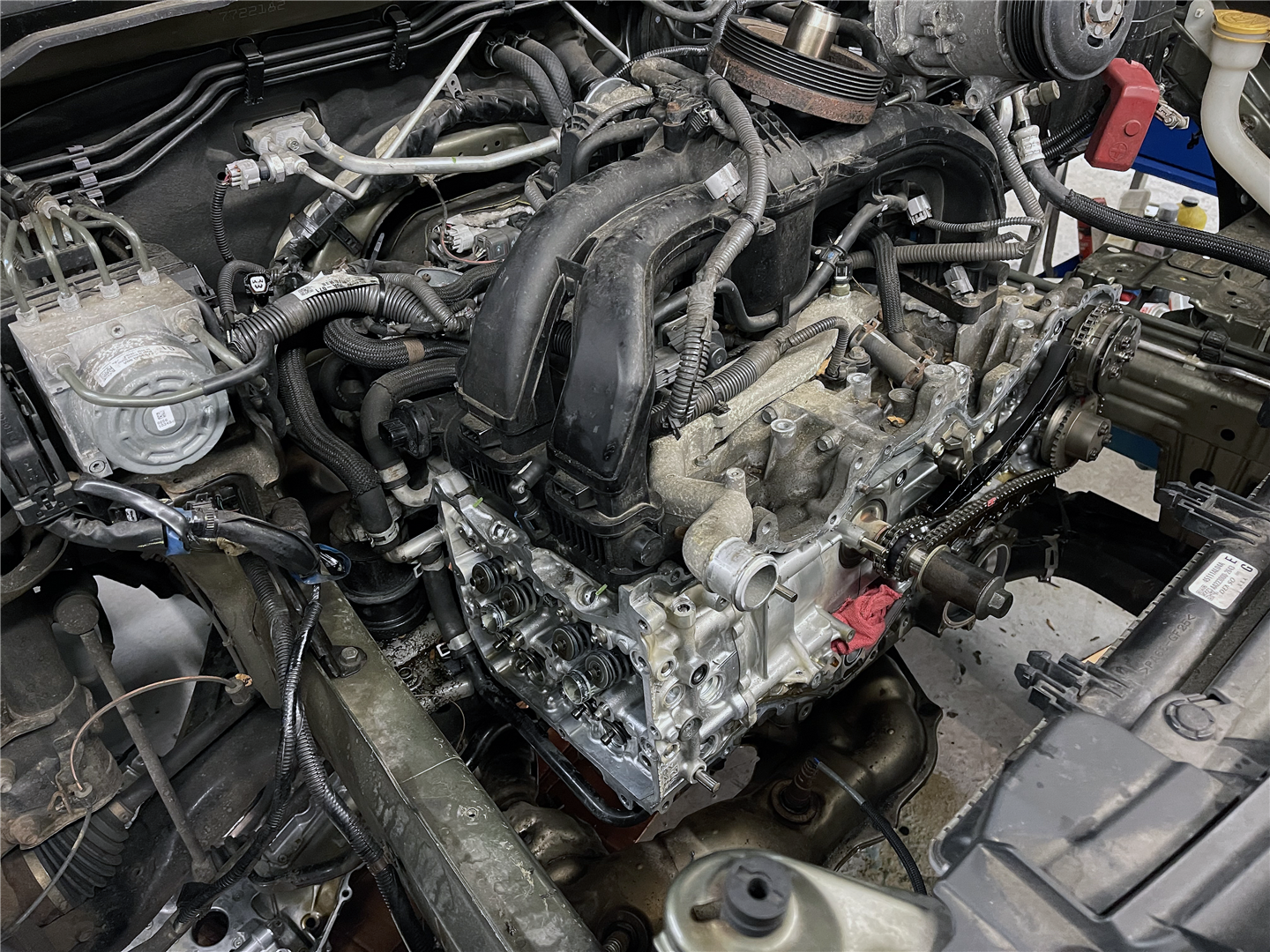
The heart of your vehicle lies within its engine, and ensuring the optimal performance of its components is key to a smooth ride. Today, we delve into the intricacies of the timing chain and camshaft seal replacement process on a 2015 Subaru Outback at MINH's Automotive. From reasons behind failures to the meticulous steps taken during the replacement, let's explore the inner workings of your vehicle's engine. Understanding the Timing Chain and Camshaft Seal: The timing chain plays a pivotal role in the engine's functionality. The timing chain synchronizes the rotation of the crankshaft and camshaft, ensuring proper valve timing. Meanwhile, the camshaft seal prevents oil leakage around the camshaft. Reasons for Timing Chain and Camshaft Seal Failure: Over time, these critical components can succumb to wear and tear, leading to potential issues. Some common reasons for failure include: Wear and Stretching: Continuous use and exposure to high temperatures can cause the ... read more
Posted on 18 August 2023
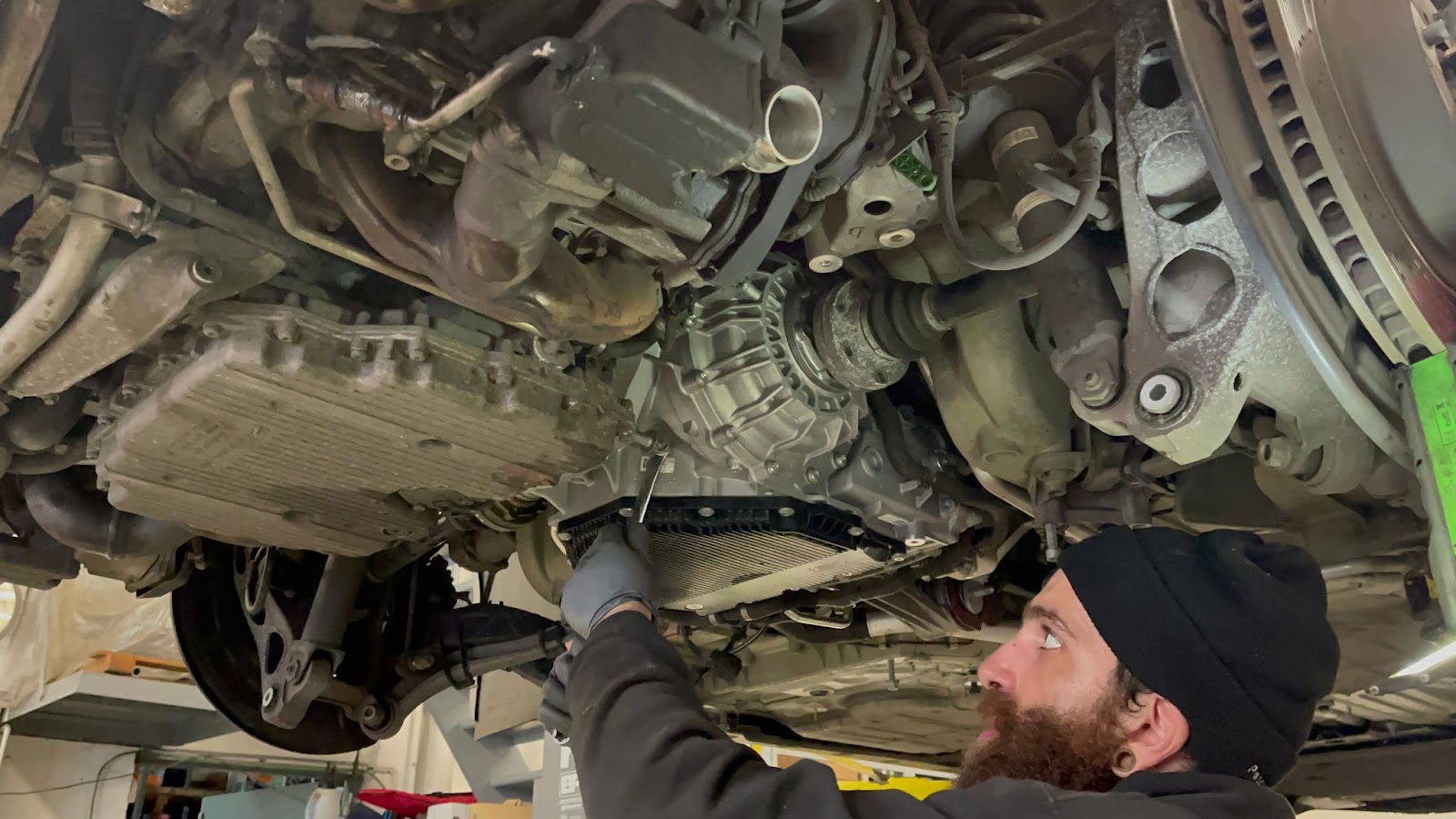
What are some indicators that my vehicle's transmission may need to be serviced? Your car's transmission is one of the most critical components of its engine, responsible for transmitting power from the engine to the wheels. Unfortunately, like any mechanical component, transmissions can develop faults and problems over time. At MINH's Automotive, we have seen our fair share of common transmission faults. Here are a few that you should be aware of: Transmission Slipping: This occurs when the transmission shifts gears randomly, causing the engine to rev up without the car accelerating. Transmission slipping is usually a sign of a worn clutch or damaged transmission bands. Delayed Engagement: If you notice that there's a delay between shifting gears and the car actually moving, it's a sign of a delayed engagement issue. This is usually due to low transmission fluid levels or worn transmission components. Shuddering or Vibrating: A shuddering or vib ... read more
Posted on 22 May 2023
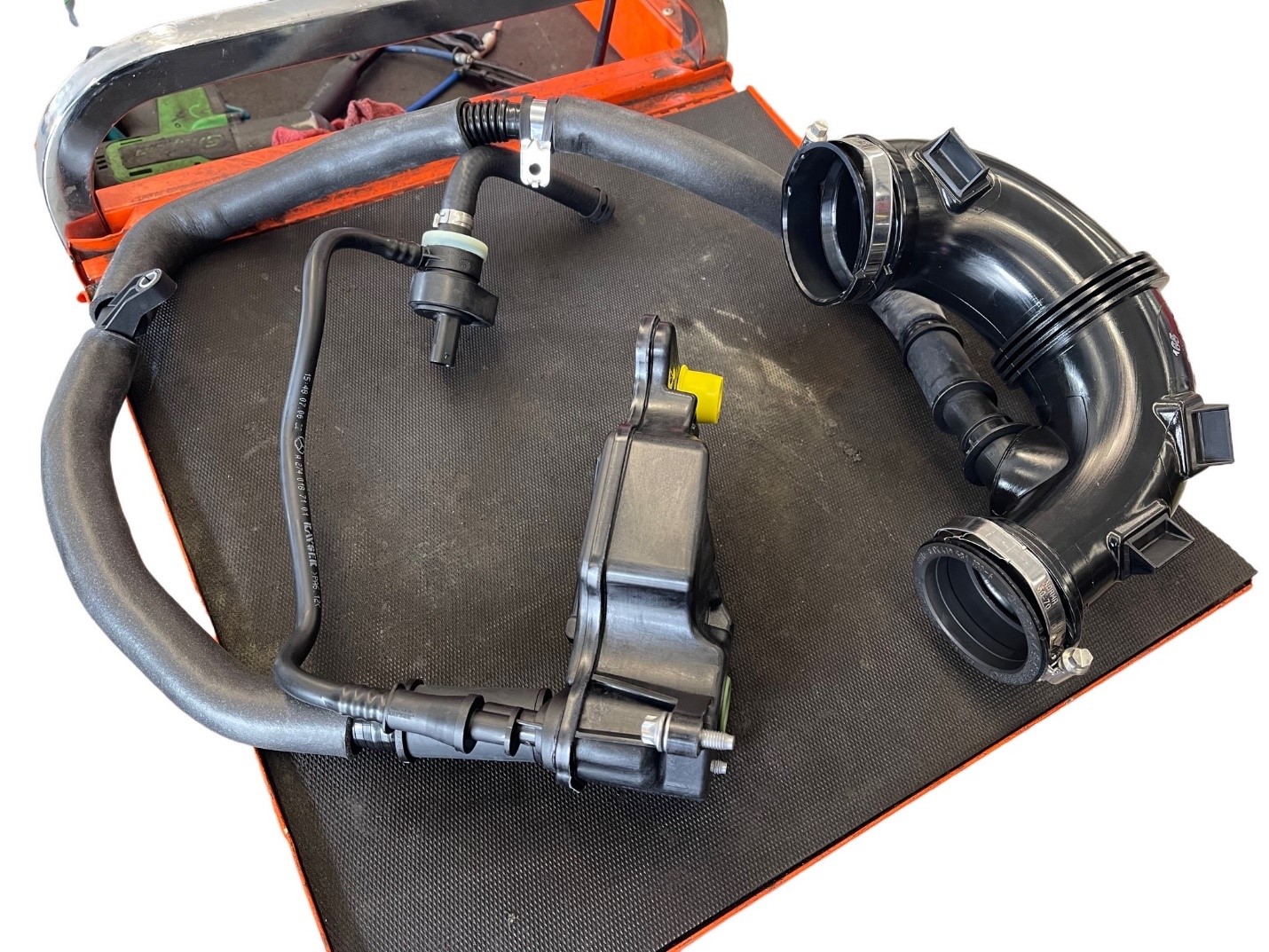
What exactly is a PCV? And how does it affect my engines performance? The Positive Crankcase Ventilation (PCV) valve plays a vital role in regulating the pressure inside your vehicle's engine by removing harmful gases and vapors from the crankcase. If your PCV valve is not functioning correctly, it can cause a range of problems that can lead to decreased engine performance, increased emissions, and even damage to engine components over time. One of the most noticeable signs of a faulty PCV valve is decreased engine performance. This is because the valve helps regulate the air-fuel mixture in the engine, and when it malfunctions, it can cause the engine to run too rich or too lean, resulting in decreased performance and triggering the check engine light. Another sign of a failing PCV valve is increased emissions. The PCV valve plays an essential role in controlling emissions in your vehicle's engine. If it fails, it can cause an increase in harm ... read more
Posted on 09 May 2023
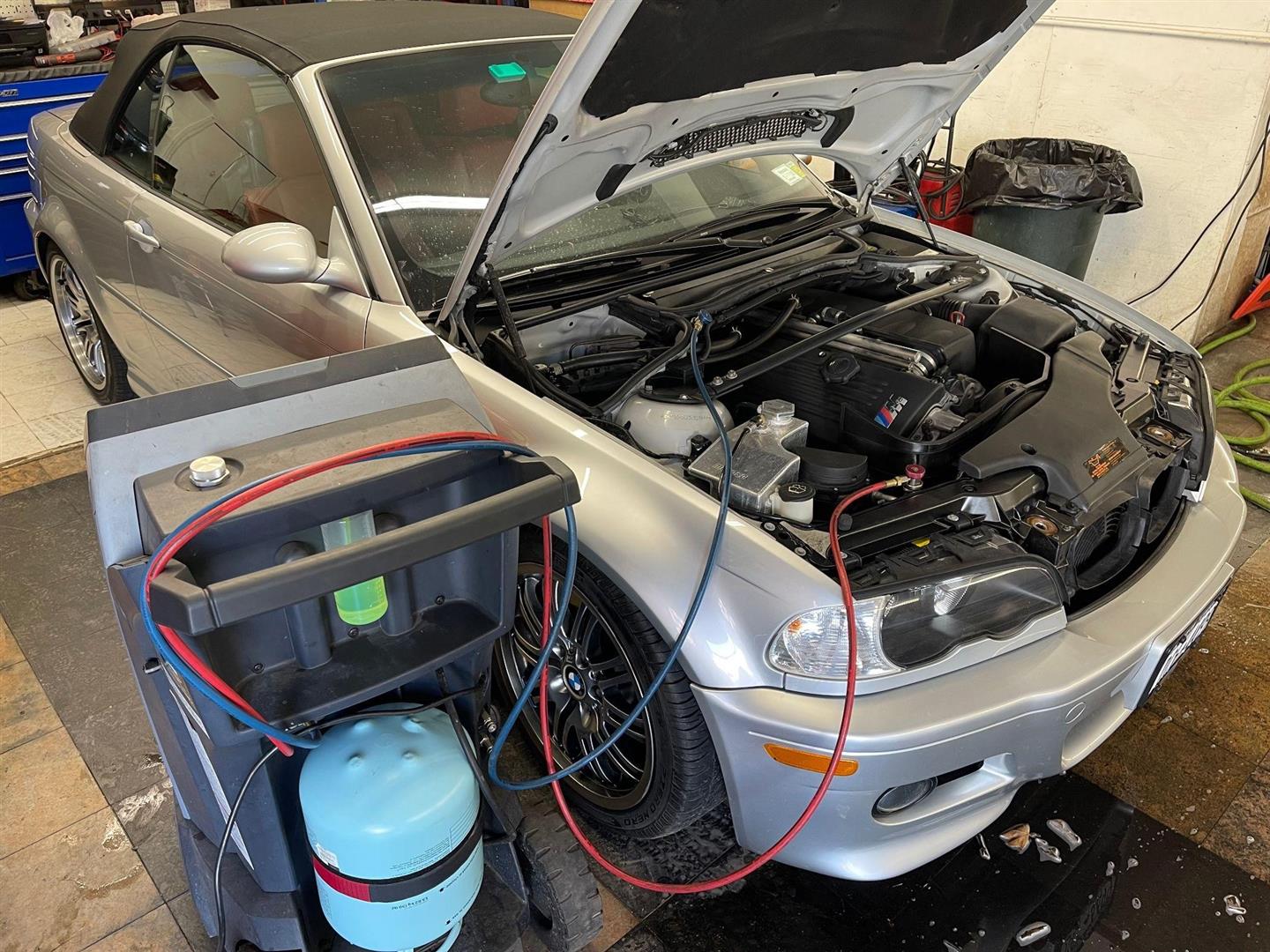
There are several potential reasons why a car's AC may not be functioning properly, including: Low refrigerant levels: This is a common reason why the AC may not be blowing cold air. Low refrigerant levels can be caused by leaks in the AC system. Faulty compressor: The compressor is a key component of the AC system, and if it is not working correctly, the AC may not function properly. Clogged or dirty air filters: If the air filters are clogged or dirty, this can restrict airflow, which can lead to reduced cooling performance. Electrical issues: Electrical problems such as faulty wiring, blown fuses, or a malfunctioning thermostat can also cause the AC to malfunction. At MINH's Automotive, we recommend bringing your car in for our qualified technicians to diagnose the issue with your car's Air Conditioner system. Once diagnosed, we will recommend the necessary repairs, which may include fixing any leaks in the AC system, replacing faulty components, or cleaning/repl ... read more
Posted on 03 January 2023
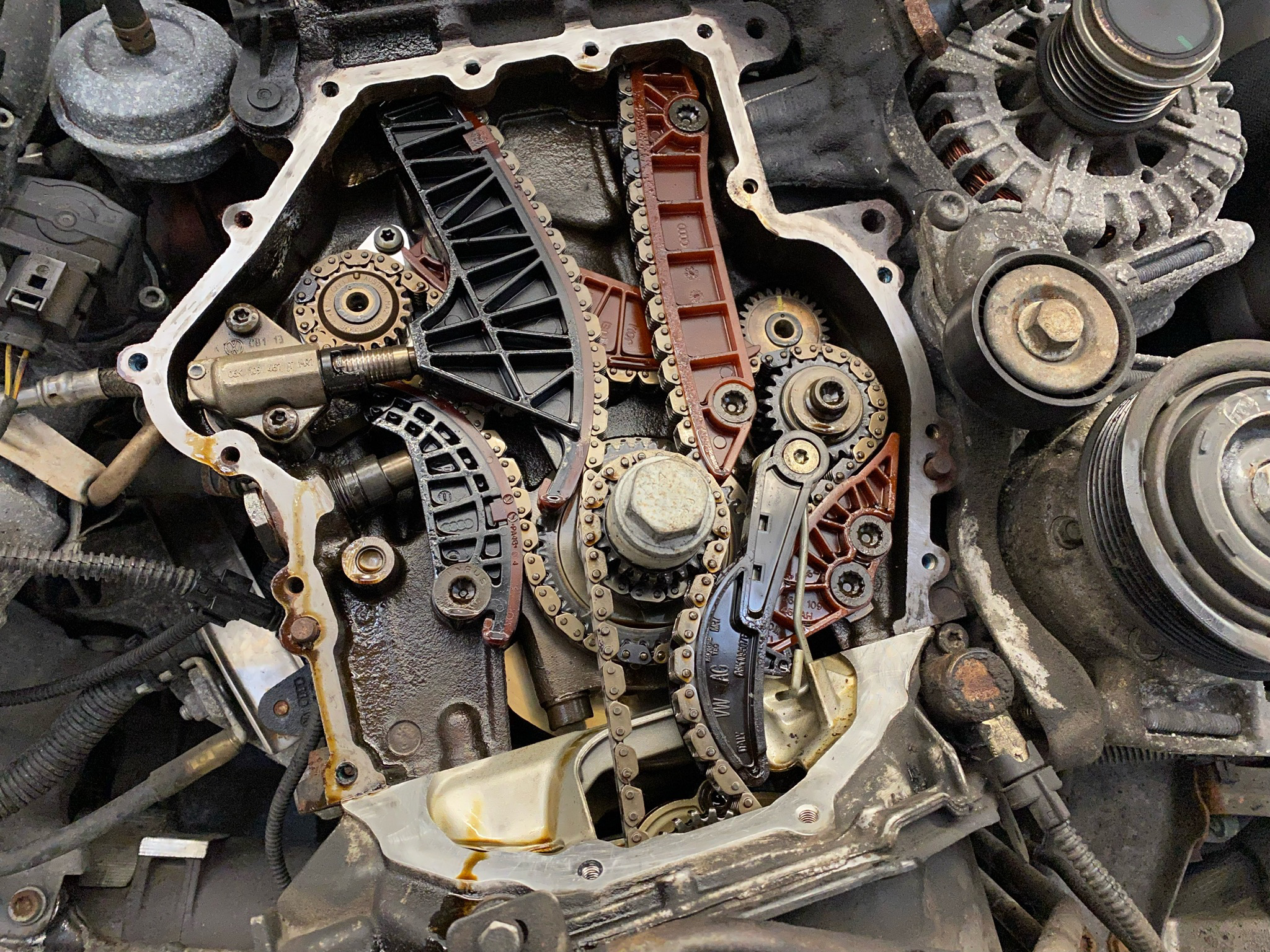
Volkswagen Audi engine timing chains come in many variations specific to the vehicle but have the same responsibility to keep mechanical synchronization within the engine to ensure smooth operation. The engine in question is a 2.0 CAEB TFSI. Here are some insights: What is a timing chain? It is a metal chain that wraps around sprockets within the engine that are attached to crankshaft and camshafts to synchronize the stages of intake, compression, combustion, and exhaust for the engine to produce power. What are symptoms of a bad timing chain? Some may include: CEL Light- The check engine light is on and may have timing codes stored in the ECM module. Hesitation- Vehicle is having trouble starting or may not start at all. Rattling sound- A rattling sound can be heard from the engine with accordance to applying gas. Misfire- ... read more
Posted on 14 September 2018
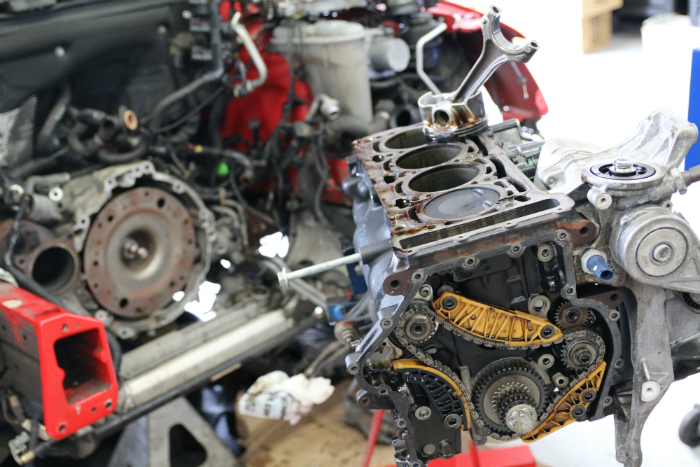
The piston rings, on the 2.0 and 1.8 TFSI engines pre-dating 2012 (majority of the reports being from the 2.0), let little oil seep through to the cylinders. Once there, they result in high oil consumption due to burning. As the driver, this issue will come to your attention by way of the ‘add one litre of oil’ notification. If and when this does happen, we recommend that you add a litre of the right grade oil as soon as possible, though you don’t need to stop the vehicle as soon as you see it. If left unattended, this problem will exacerbate. Thick smoke from acceleration, damage to the cylinders, etc. To get out ahead of the problem as an owner of a 2008–2012 2.0 or 1.8 TFSI engine, we suggest that you fill your oil to maximum capacity and then proceed to reset the odometer. The way you will know whether or not you’re affected by this problem will be the ‘add one litre of oil’ notification after having driven your Audi less than 1,200 m ... read more
Posted on 05 April 2018
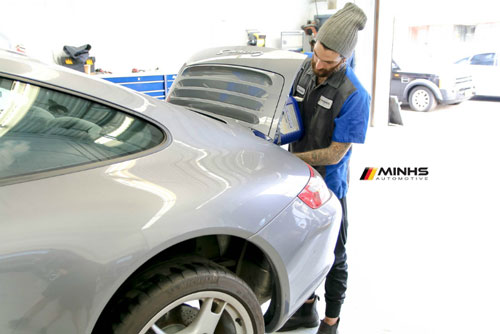
As a dealer-alternative European auto repair shop serving Bay Ridge Brooklyn, we have over a 25 year track record of exceeding customer expectations. We provide general repairs and maintenance on all domestic and import cars and offer specialization services for BMW, MINI, Volkswagen, Audi, Volvo, Land Rover, Jaguar, Mercedes Benz and Porsche vehicles. The three things which set us apart: Unparalleled level of protection Dealer quality service, for less than the dealer price Customer service that goes above and beyond 1. Unparalleled level of protection - 3 Years – 36,000 Miles Nationwide warranty on our service. A job well done in conjunction with a piece of mind. We are one of very few shops in al ... read more
Posted on 20 September 2017
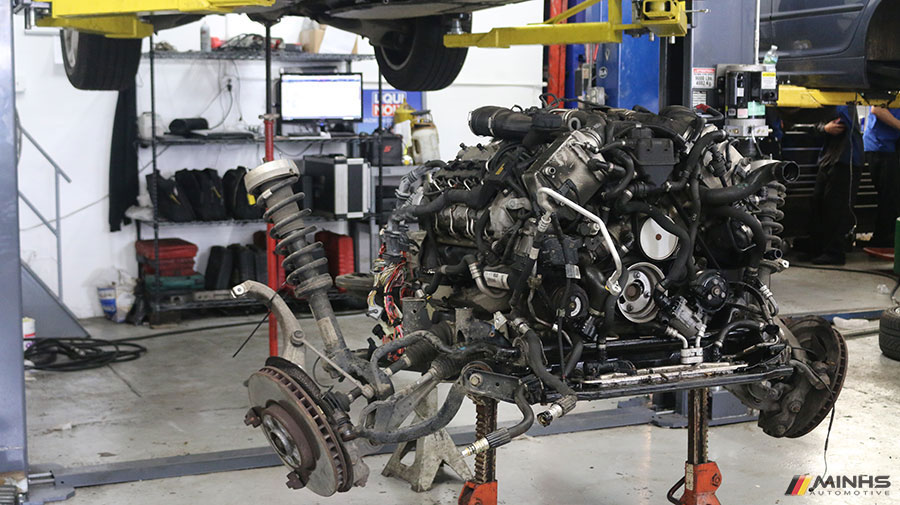
THE PROBLEM This BMW equipped with the N63 engine had an oil consumption issue where 1qt had to be added every 4 days and was blowing smoke from the tailpipe with a blue tint when accelerating post-warmup. This is caused by the aged rubber on the valve stem seals that hardens and cracks which will lose its ability to seal the valve guide. Bad valve stem seals will cause excessive oil consumption and can be identified by recording the level of oil loss. This is unfortunately a common problem that has carried over from the N62 to the N63 BMW engine. The models affected are vehicles from 2003-2008 with N62 V8 engines such as the E60 545i, E63 645i, E65 745i, E53 X5 and vehicles from 2009-2013 equipped with N63 engines such as F10 550i, F12 650i, F01 750i, and E70 X5. HOW WE FIXED IT We fixed it the only way you can fix this problem when it arises: by replacing the valve stems with new ones. First and f ... read more
Posted on 24 July 2017

Your Audi is a big, powerfully engineered investment. Such an investment needs to be vigilantly protected, and below are a couple of helpful articles we've published that will arm you with valuable knowledge that should help prevent costly repairs, extend your Audi's lifespan, and keep it in peak condition. 1. Carbon build up on Audi Engines Affecting Your Audi Fuel Economy & Audi Engine Performance Carbon build up in your Audi is an inevitability because over time carbon deposits will build up on the intake valves. This then leads to reduced performance & fuel economy by your Audi engine, which you can read about in more depth in this article. And when you drive Audi, the last thing you want is reduced performance & increase in money you have ... read more
Posted on 12 July 2017

For the past few years, as an auto repair shop in Brooklyn specializing in European cars, we’ve leveraged our 25 years of experience to publish a lot of helpful content for owners of European cars looking to keep their car in prime condition. In this article we will circle back to important advice we’ve published for BMW owners in particular. So below, we’ve rounded up 5 important nuggets of advice -- served in bite sized pieces -- we have shared along the way (in no particular order), with links to the original post. 1. Failing Water Pump Warning Signs Has your BMW passed 50,000 miles or has it been 50,000 miles since the last time you replaced your electric water pump? Is your BMW's yellow engine temperature light turning red? If your answer is yes to either/both, we highly recommend that you ... read more